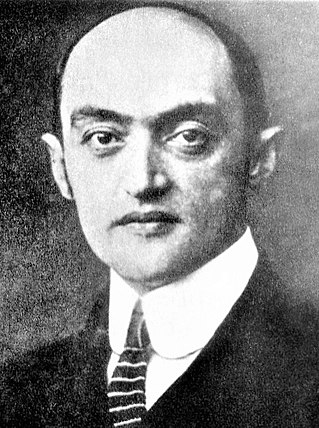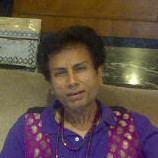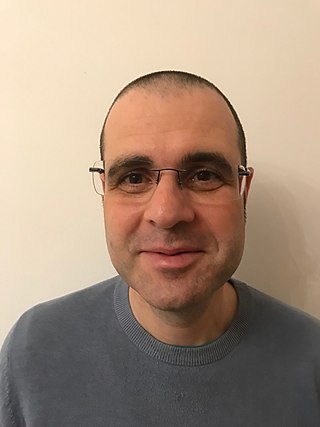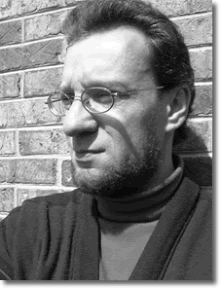Work
Dahms's research and teaching pertains to the tensions in the modern age between economic change, on the one hand, and politics, culture and society, on the other. Interpreting the contributions of Marx and Weber, in particular, as foundations for a dynamic theory of modern society, he starts out from the proposition that it is only from the perspectives of “globalization” (including the debates about restructuring, transnational corporations, and neo-imperialism) and planetary sociology that the contradictions and paradoxes of modern society can be disentangled, at the intersection between identity structure and social structure. [8]
The spectrum of his theoretical reference points reaches from the critical theory of the Frankfurt School at one end - especially Theodor W. Adorno and Jürgen Habermas - to Joseph Schumpeter's social theory of capitalism, at the other, but also includes many other social theorists, philosophers, and social scientists, including Georg Wilhelm Friedrich Hegel, Max Weber, Eduard Heimann, Talcott Parsons, Darko Suvin, Lawrence Hazelrigg, Nancy Fraser, and Amy Allen. In modern society, a particular kind of social order fused with a specific type of social processes into an inherently irreconcilable set of force-fields fraught with many different types of tensions that maintains stability by devising mechanisms designed to contain the destructive power of myriad contradictions, in the process continually deepening those contradictions. The consequence is a widening gap between the categories social scientists employ to “meaningfully” interpret present conditions, and the categories that would have to be developed and deployed to maintain the possibility of meaning—socially, culturally, and politically. [9]

Joseph Alois Schumpeter was an Austrian political economist. He served briefly as Finance Minister of Austria in 1919. In 1932, he emigrated to the United States to become a professor at Harvard University, where he remained until the end of his career, and in 1939 obtained American citizenship.

Max Horkheimer was a German philosopher and sociologist who was famous for his work in critical theory as a member of the Frankfurt School of social research. Horkheimer addressed authoritarianism, militarism, economic disruption, environmental crisis, and the poverty of mass culture using the philosophy of history as a framework. This became the foundation of critical theory. His most important works include Eclipse of Reason (1947), Between Philosophy and Social Science (1930–1938) and, in collaboration with Theodor Adorno, Dialectic of Enlightenment (1947). Through the Frankfurt School, Horkheimer planned, supported and made other significant works possible.

Theodor W. Adorno was a German philosopher, musicologist, and social theorist.

The Frankfurt School is a school of thought in sociology and critical philosophy. It is associated with the Institute for Social Research founded at Goethe University Frankfurt in 1923. Formed during the Weimar Republic during the European interwar period, the first generation of the Frankfurt School was composed of intellectuals, academics, and political dissidents dissatisfied with the contemporary socio-economic systems of the 1930s; namely, capitalism, fascism, and communism.
Social theories are analytical frameworks, or paradigms, that are used to study and interpret social phenomena. A tool used by social scientists, social theories relate to historical debates over the validity and reliability of different methodologies, the primacy of either structure or agency, as well as the relationship between contingency and necessity. Social theory in an informal nature, or authorship based outside of academic social and political science, may be referred to as "social criticism" or "social commentary", or "cultural criticism" and may be associated both with formal cultural and literary scholarship, as well as other non-academic or journalistic forms of writing.

Economic sociology is the study of the social cause and effect of various economic phenomena. The field can be broadly divided into a classical period and a contemporary one, known as "new economic sociology".
Moishe Postone was a Canadian historian and social theorist. He was a professor of history at the University of Chicago, where he was part of the Committee on Jewish Studies.
Richard Swedberg is a Swedish sociologist. He is currently Professor Emeritus at the Department of Sociology at Cornell University.
Immanent critique is a method of analyzing culture that identifies contradictions in society's rules and systems. Most importantly, it juxtaposes the ideals articulated by society against the inadequate realization of those ideals in society's institutions.

Capitalism, Socialism, and Democracy is a book on economics, sociology, and history by Joseph Schumpeter, arguably his most famous, controversial, and important work. It's also one of the most famous, controversial, and important books on social theory, social sciences, and economics—in which Schumpeter deals with capitalism, socialism, and creative destruction.

Rajani Kannepalli Kanth is a professor, economist, philosopher, and social thinker. Though born in India, he is a US citizen and has resided overseas for most of his life. His major research interests lie in the fields of Economics, Social Theory and Policy, and Women's Issues. His works have received positive endorsements from iconic intellectuals such as Ravi Batra, Roy Bhaskar, Noam Chomsky, Geoff Harcourt, Robert Heilbroner, John M. Hobson, Jonathan Joseph, Tony Lawson, Ali Mazrui, John McMurtry, Roger Owen, Warren Samuels, Gayatri Chakravorty Spivak, Paul Sweezy, and Immanuel Wallerstein. He has, across plus-three decades, taught in the areas of Anthropology, Sociology, Political Science, History, Economics, and Philosophy. He currently serves as the Trustee of the World Peace Congress that he founded in Salt Lake City, Utah, in 2007. He has also served as an advisor to the United Nations in New York, aside from being on the faculty of major universities around the world.
In Marxist philosophy, reification is the process by which human social relations are perceived as inherent attributes of the people involved in them, or attributes of some product of the relation, such as a traded commodity.
Neo-Marxism is a collection of Marxist schools of thought originating from 20th-century approaches to amend or extend Marxism and Marxist theory, typically by incorporating elements from other intellectual traditions such as critical theory, psychoanalysis, or existentialism. Neo-Marxism comes under the broader framework of the New Left. In a sociological sense, neo-Marxism adds Max Weber's broader understanding of social inequality, such as status and power, to Marxist philosophy.

A critical theory is any approach to humanities and social philosophy that focuses on society and culture to attempt to reveal, critique, and challenge power structures. With roots in sociology and literary criticism, it argues that social problems stem more from social structures and cultural assumptions rather than from individuals. Some hold it to be an ideology, others argue that ideology is the principal obstacle to human liberation. Critical theory finds applications in various fields of study, including psychoanalysis, film theory, literary theory, cultural studies, history, communication theory, philosophy, and feminist theory.

Michael Hauser is a Czech philosopher, translator and founder of the civic organization Socialist Circle, which he also chaired until 2014. He became a member of the Council of Česká televize in March 2014.
Crisis theory, concerning the causes and consequences of the tendency for the rate of profit to fall in a capitalist system, is associated with Marxian critique of political economy, and was further popularised through Marxist economics.

Simon Clarke was a British sociologist who specialised in social theory, political economy, labour relations, and the history of sociology. He had a particular interest in employment relations in China, Vietnam, and the former-Soviet nations. He was Professor Emeritus of Sociology at the University of Warwick.

Helmut Staubmann is an Austrian sociologist. He is professor for social theory and cultural sociology at the University of Innsbruck and Dean of the School of Political Science and Sociology of the University of Innsbruck. From 2013 to 2015, he served as President of the Austrian Sociological Association.

Christian Fuchs is an Austrian social scientist. From 2013 until 2022 he was Professor of Social Media and Professor of Media, Communication & Society at the University of Westminster, where he also was the Director of the Communication and Media Research Institute (CAMRI). Since 2022, he is Professor of Media Systems and Media Organisation at Paderborn University in Germany. He also known for being the editor of the open access journal tripleC: Communications, Capitalism & Critique. The journal's website offers a wide range of critical studies within the debate of capitalism and communication. This academic open access journal publishes new articles, special issues, calls for papers, reviews, reflections, information on conferences and events, and other journal specific information. Fuchs is also the co-founder of the ICTs and Society-network which is a worldwide interdisciplinary network of researchers who study how society and digital media interact. He is the editor of the Open Access Book Series "Critical, Digital and Social Media Studies" published by the open access university publishing house University of Westminster Press that he helped establish in 2015.

Fiscal sociology is the sociology of public finance, particularly tax policy. As a field, it seeks to explore the relationship that taxation constitutes between citizens and the state, including the cultural and historical factors that determine compliance with taxation. Joseph Schumpeter's 1918 work "The Crisis of the Tax State" is a founding text of fiscal sociology, though Schumpeter himself borrowed the term from the Austrian sociologist Rudolf Goldscheid's 1917 Staatssozialismus oder Staatskapitalismus. Since the 1990s, "new fiscal sociology" has analysed the foundational role of taxation as a cause, and not just an effect, of the emergence of modernity.












